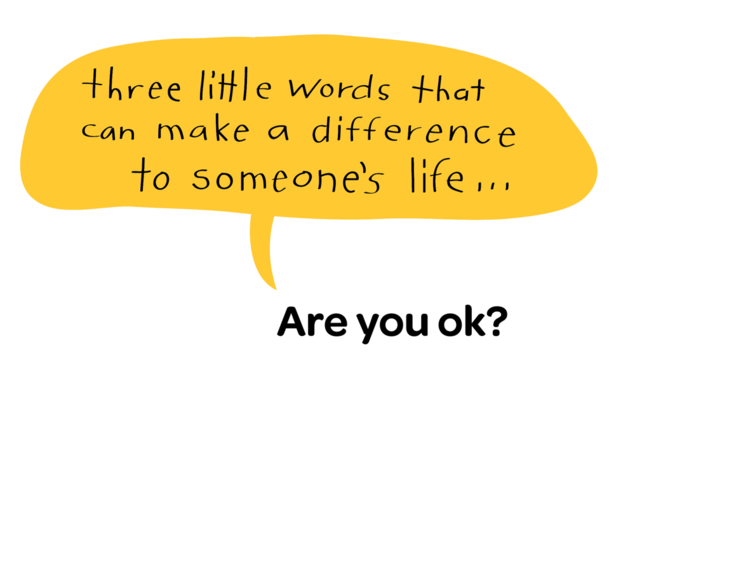These last few years have brought many challenges at work and home, which is causing significant emotional distress. 1 in 4 people are experiencing mild-moderate anxiety and depression, and close to 1 in 3 people are experiencing severe psychological distress.
– But less than 65% of people are receiving the professional help that can alleviate their distress.
– And a simple RUOK? check in can make the difference between someone being connected to help versus someone struggling to cope on their own.
50% of us admit to not checking in with people we notice are struggling. And what is holding us back is fear.
– What do I say if they are not ok?
– What do I do if someone shares that they are struggling?
Tips on what to say:
- Normalise and provide hope:
“I am so glad you told me. Mental health issues are very common and there are lots of resources and options for help.” - Show empathy and support:
“Thank you for telling me. I appreciate your courage in sharing. I can see that this is really tough / distressing / challenging for you. I don’t have any personal experience with what you are going through, what can I do to help?”
Tips on what to do:
- Provide information and resources on what they might be experiencing. First ask if this is of interest and welcome to them. Beyond Blue and Black Dog offer facts, checklists and a range of options to connect to appropriate.
- Provide support for their chosen strategies or actions. Don’t impose your views on what they should be do unless they specifically ask for your suggestions.
What if they don’t want help?
- Let them know that if they want to talk at any time you are available to listen.
- Check back in with them at a later date.
- Know that just showing that you care and that help is available is a great first step in of itself But most importantly of all, know that it is ok, not to feel ok during this time. And that there is help and resources available to you.

